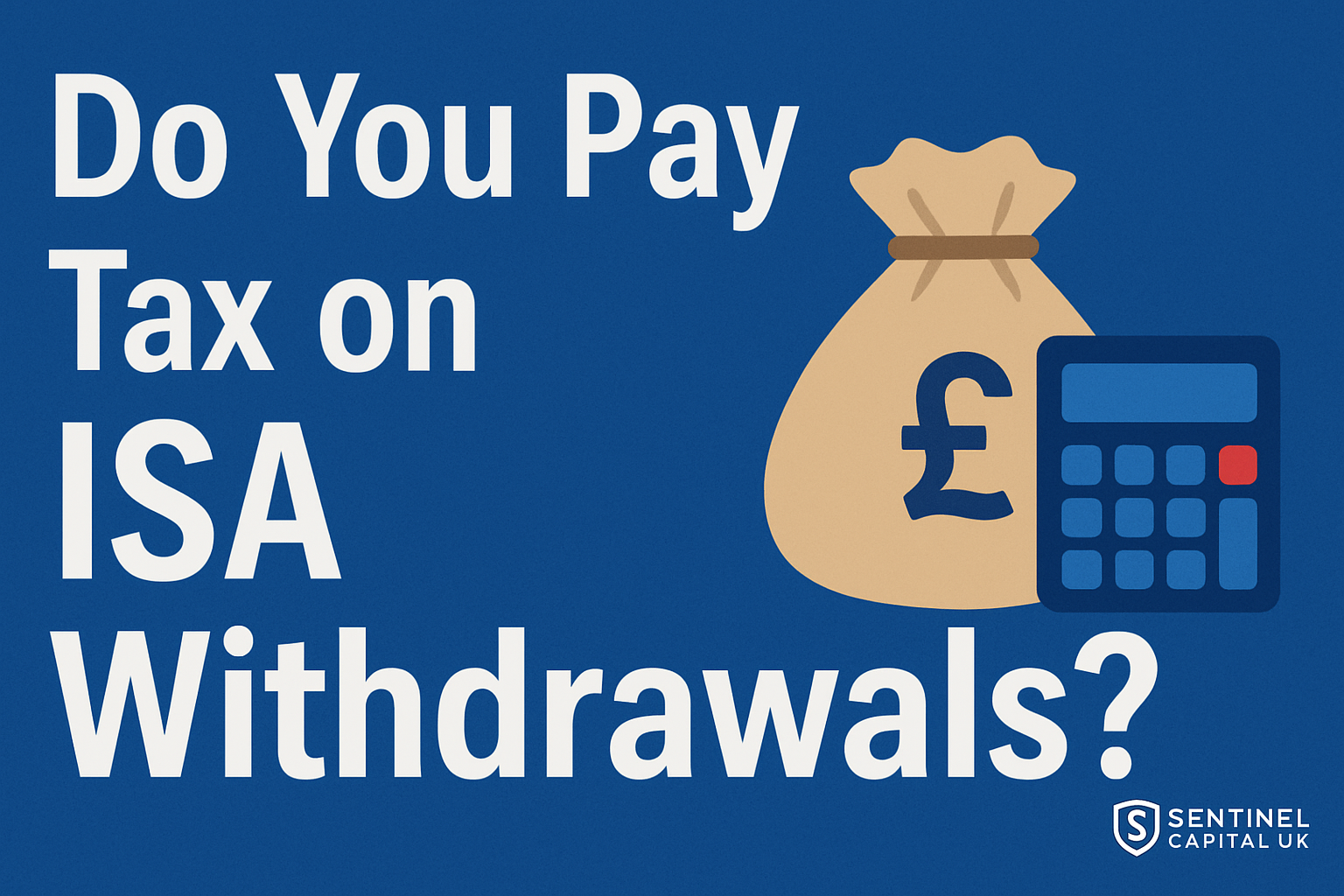An ISA lets you save or invest without paying tax on the returns you earn. But the questions many savers have are, “Will I pay tax when I take money out?” and “How much is tax on ISA withdrawals?”
The answer depends on the type of ISA you hold. In some cases, withdrawals are allowed and completely tax-free, but in others, you may have to pay penalties if you withdraw your money before the set time.
In this guide, you will find complete information on how ISA withdrawals work, when they’re tax-free, and what exceptions you should know.
So, Are ISA Withdrawals Tax-Free?
You can generally withdraw money from an ISA at any time without paying any tax on your savings or investment growth. This tax-free benefit applies to most ISAs, including;
- Cash ISAs
- Stocks & Shares ISAs
- Innovative Finance ISAs
Interest, dividends, or investment gains remain tax-free even after withdrawal. However, it’s important to check your ISA provider’s terms. Some providers may have specific rules regarding withdrawals.
Why Flexible ISAs Are Perfect for Withdrawals?
If your ISA is flexible, you can withdraw money and put it back during the same tax year without reducing your current year’s allowance.
Example:
- Your ISA allowance for 2025/26 is £20,000.
- You deposit £10,000 and withdraw £3,000.
- If your ISA is flexible, your remaining allowance is £13,000 (£10,000 remaining allowance + £3,000 withdrawn).
- If your ISA is not flexible, your remaining allowance is only £10,000.
Check with your provider to see if your ISA is flexible. Flexible ISAs are particularly useful if you need temporary access to funds while still maximizing your annual allowance.
Withdrawing Money from a Lifetime ISA (LISA)
Unlike Cash and Stocks & Shares ISAs, withdrawing from a Lifetime ISA comes with conditions and potential charges.
You can withdraw money from a Lifetime ISA without a penalty if you are:
- Buying your first home
- Aged 60 or over
- Terminally ill, with less than 12 months to live
If you withdraw money for any other reason, a 25% government withdrawal charge applies. This charge recovers the bonus received on your original savings.

Example 1:
- You save £800 and receive a 25% government bonus of £200, giving a total of £1,000.
- If you withdraw the full pot for an unauthorised reason, the 25% charge (£250) applies, leaving you with £750.
Example 2:
- If you need £120 cash, you must withdraw £160 to account for the 25% charge. After the £40 charge, you receive the £120 needed.
Withdrawing Money from a Junior ISA
A Junior ISA is a tax-free savings account for children under 18. The funds in a Junior ISA are locked until the child turns 18, and early withdrawals are generally not allowed. This means neither the child nor the parent can access the money before this age, except in exceptional circumstances, such as terminal illness.
Once the child reaches 18, the Junior ISA automatically becomes an adult ISA, and the account holder can withdraw money freely without paying any tax on the savings or investment growth.
Do You Lose Your ISA Allowance After Withdrawal?
This is one of the most misunderstood aspects of ISAs. The UK annual ISA allowance is currently £20,000 for the 2025/26 tax year. This is the total you can pay across all your ISAs combined.
- Non-Flexible ISAs: Once you withdraw money, your allowance doesn’t reset.
- Example: If you deposit £20,000 and withdraw £5,000, you can’t put that £5,000 back in during the same tax year.
- Example: If you deposit £20,000 and withdraw £5,000, you can’t put that £5,000 back in during the same tax year.
- Flexible ISAs: Allow withdrawals and re-deposits without affecting your allowance, provided everything happens within the same tax year.
This makes flexible ISAs especially useful for people who may need access to their money temporarily but still want to maximise their annual allowance.
Comparing ISA Withdrawals with Regular Savings Accounts
Let’s compare ISA withdrawals with Regular savings accounts;
Standard Savings Account | ISA Account |
You get a Personal Savings Allowance (£1,000 for basic-rate taxpayers, £500 for higher-rate). Any interest above this is taxed at your marginal income tax rate. | Every penny of interest, dividends, and gains is tax-free. No need to track or declare earnings. |
For example, if you earn £2,000 in interest from a regular savings account, part of that may be taxed. If the same £2,000 is inside an ISA, you withdraw the full amount with no deductions.
Do ISA Withdrawals Affect Your Tax Return?
A major benefit of ISAs is that you don’t need to declare withdrawals to HMRC. Whether you withdraw £500 or £50,000, it won’t appear on your tax return.
This makes ISAs much simpler to manage than other accounts. By comparison, large interest payments from ordinary savings accounts, rental income, or capital gains from investments often must be reported. With ISAs, HMRC has no involvement at all once the money is withdrawn.
FAQs
1. Can I withdraw money from an ISA anytime?
Yes. Most ISAs allow withdrawals whenever you need them, though some investment ISAs may take longer to process due to the sale of investments.
2. Do ISA withdrawals affect benefits?
Yes, they might. If you take money out and keep it as cash savings, it could count towards means-tested benefits like Universal Credit or Pension Credit. The ISA wrapper itself doesn’t shield you from this.
3. Is ISA income taxable after withdrawal?
No. The tax-free benefit doesn’t vanish once you withdraw. Whether it’s interest, dividends, or investment gains, the money remains yours tax-free.
4. Can HMRC tax ISA withdrawals?
No. Once your funds are inside an ISA, they’re protected from UK tax. The only exception is if you’re living abroad, and your new country applies local taxes on savings or investments.
5. Can I withdraw from a Junior ISA early?
No, unless in exceptional circumstances such as terminal illness. Otherwise, the funds are locked until age 18.
Conclusion
Withdrawing money from your ISA is straightforward and tax-free, but understanding the rules around flexible ISAs, Lifetime ISAs, and allowance limits is crucial.
At Sentinel UK, we provide tailored guidance to help you make the most of your ISAs, pensions, and other savings.
💡 Want expert advice on tax-free savings and smart withdrawals? Contact Sentinel UK today to plan your financial future confidently.


